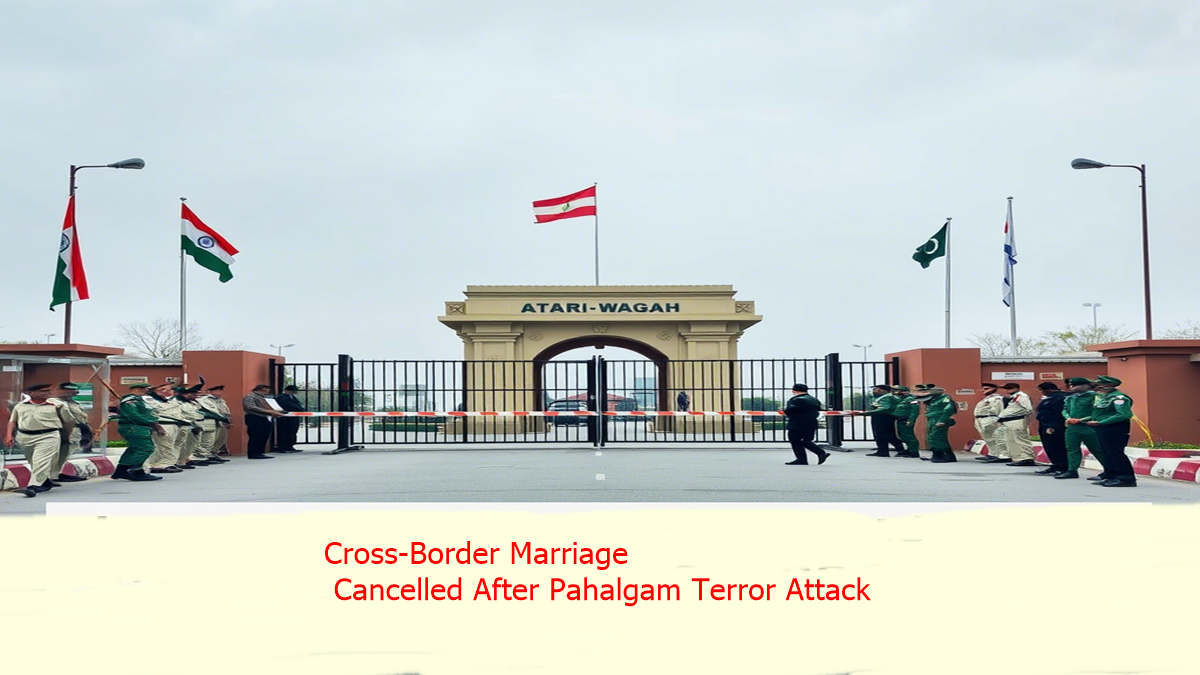In a tragic fallout of rising geopolitical tensions, a cross-border marriage between a groom from Rajasthan, India, and a bride from Pakistan has been abruptly called off after a terrorist attack in Jammu and Kashmir prompted India to close the Attari-Wagah border.
Pahalgam Terror Attack: 26 Civilians Killed
On April 22, 2025, a devastating terrorist attack rocked the tourist town of Pahalgam in Jammu and Kashmir. According to official sources, 26 innocent civilians lost their lives. Security agencies confirmed the attack was orchestrated by heavily armed militants targeting local tourists.
In response, the Government of India initiated several strict diplomatic and security measures, including the closure of the Attari-Wagah border, India’s main land crossing point with Pakistan.
A Wedding Halted by Terror and Tension
Caught in this turmoil was Saitan Singh, a young man from Rajasthan whose wedding to a Pakistani woman was scheduled in Pakistan. The marriage had been arranged by both families, and several of the groom’s relatives had already crossed the border for the ceremony.
However, with the Attari-Wagah border now sealed, Singh could not reach his bride. His wedding was halted just days before the scheduled ceremony.
In a statement to ANI, Singh expressed his disappointment:
“What the terrorists did is very wrong. Due to the border closure, we are not being allowed to travel to Pakistan. Now we have to see what happens next.”
Family Reacts to the Cancellation
Singh’s brother, Surinder Singh, also voiced his emotions:
“The attack on tourists in Pahalgam is very unfortunate. This attack has affected not only our family but the lives of many innocent civilians.”
He emphasized how emotionally significant the wedding was to their family, making its abrupt cancellation particularly painful.
Security First, But Lives Disrupted
The Indian government’s actions underline its national security priorities in response to cross-border terrorism. However, stories like this highlight the emotional and personal toll of such measures.
This real-life account of a halted wedding symbolizes the intersection of national policy and personal grief in the face of terror.
